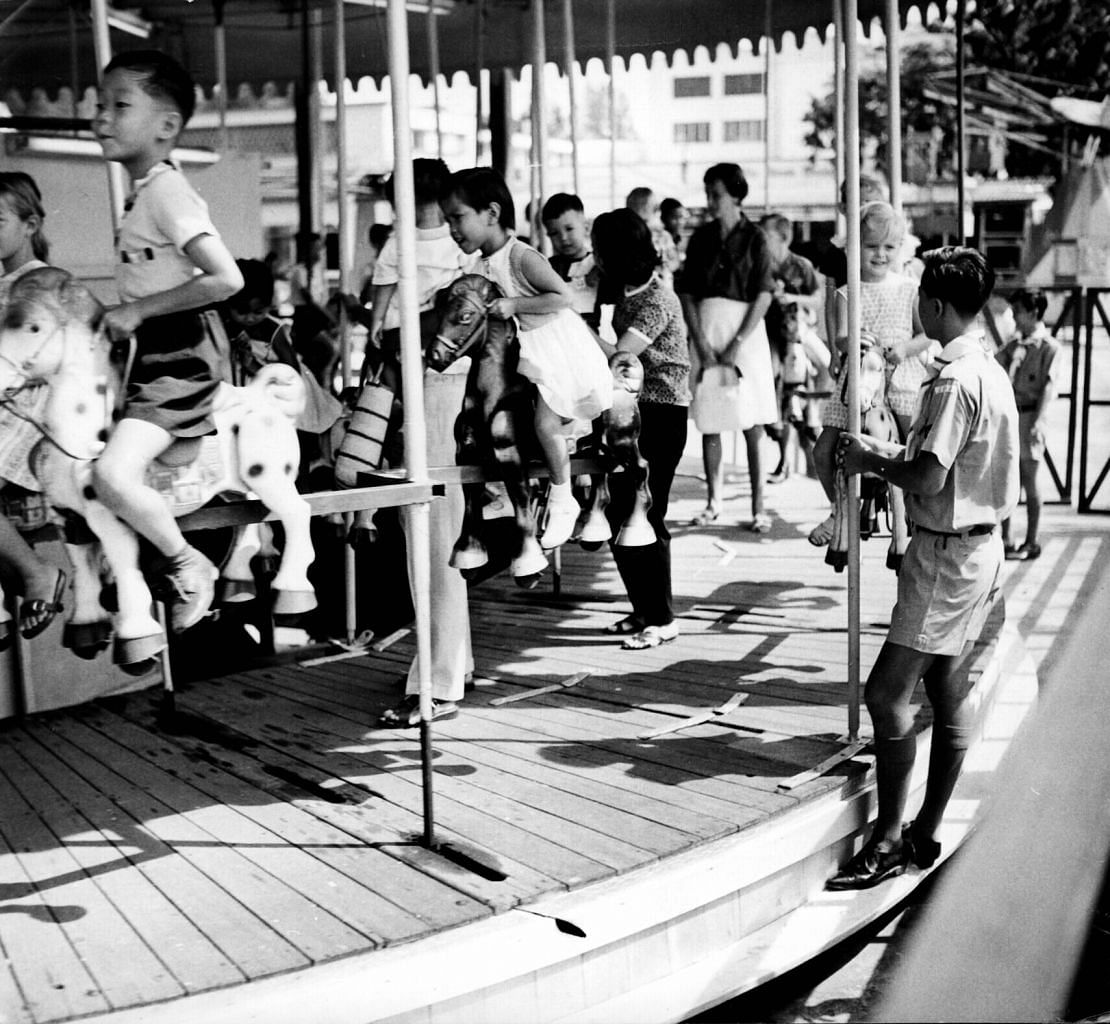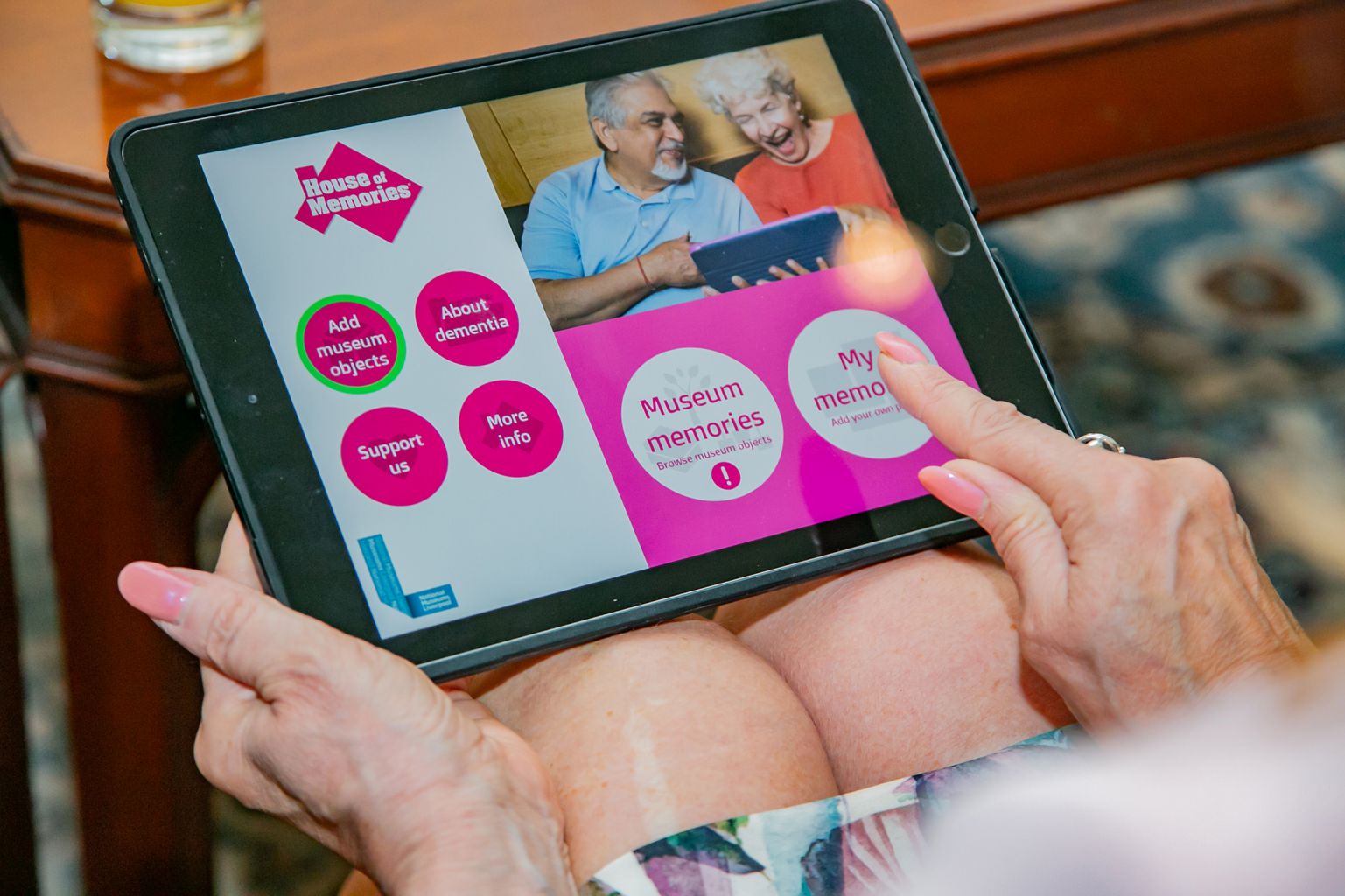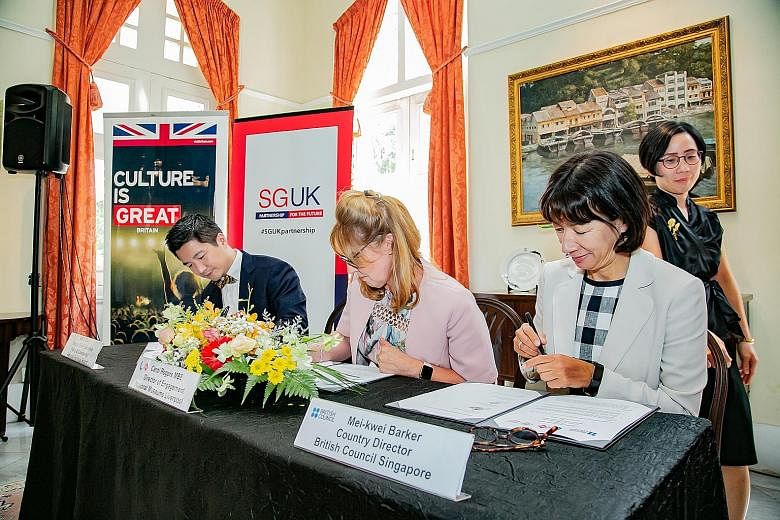Visiting the Tanjong Pagar Railway Station to see trains. Slurping on syrupy ice balls while riding a Ferris wheel at Great World Amusement Park. Watching a Teochew opera in Chinatown.
These are some of the memories that Singapore residents with dementia could soon be reminded of with help from a digital app developed by a group of museums in England, under an agreement inked yesterday.
The My House of Memories app - a key part of a dementia awareness training programme - is designed to be easy to use, with moving icons and animations used to reorient persons with dementia. Built by National Museums Liverpool, it stores visuals of hundreds of social history objects from museum collections to elicit memories in dementia patients and coax them to share their past with their caregivers.
Likewise, the upcoming Singapore version of the app will feature curated objects and photographs from the Republic's National Collection, which is managed by the National Heritage Board (NHB).
The British Council, NHB and National Museums Liverpool signed a memorandum of understanding (MOU) at Eden Hall, the official residence of the British High Commissioner to Singapore, to introduce the House of Memories programme here.
"NHB is working on making our museums and heritage more accessible to the underserved communities, including seniors and persons with dementia," NHB chief executive Chang Hwee Nee said.
"Programmes such as House of Memories can help us achieve this as it allows more to tap into and enjoy our National Collection, even using the pieces within as conversation starters for reminiscence, sharing and bonding."
The Singapore version of the app will first be developed in English and made publicly available by the end of next year after a pilot with dementia patients, healthcare professionals and caregivers at Khoo Teck Puat Hospital. Healthcare professionals and caregivers can attend training workshops to learn how to use the app with patients. The app will then be available in Malay, Mandarin and Tamil in a few years.
National Museums Liverpool's director of engagement Carol Rogers said: "The app will help trigger memories and enable the user to 'visit' the museums and connect with their heritage from the comfort of their own home or care home."
With over 12,000 people using the app in Britain and the United States, Ms Rogers has come across success stories where the app has helped to improve patients' well-being.
"A staff from a Liverpool dementia care home told us about an elderly who was dishevelled and refused to take a bath as he was frightened to get into the shower.


"After a training session, the staff took back with her some objects from the 1940s, which included a piece of carbolic soap - a pungent-smelling antiseptic soap. When the patient smelled the soap, it reminded him about bath time as a child. From that moment, the staff got him back into the bath. They got him to wash and clean himself."
This shows the power of objects and the power of memories, added Ms Rogers.
The tie-up is part of NHB's Silver Hubs initiative, which is aimed at making museums and heritage institutions more accessible to seniors.
British Council director Mei-kwei Barker said the MOU affirms both countries' shared commitment to enhancing well-being and access to arts and heritage.
British High Commissioner to Singapore Scott Wightman described the collaboration as "a great example of the SG-UK Partnership for the Future". Launched in January by Foreign Minister Vivian Balakrishnan and his British counterpart Jeremy Hunt, the tie-up aims to deepen ties between both countries in a range of areas.


